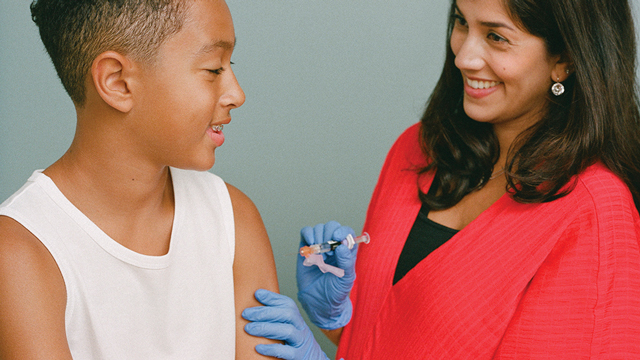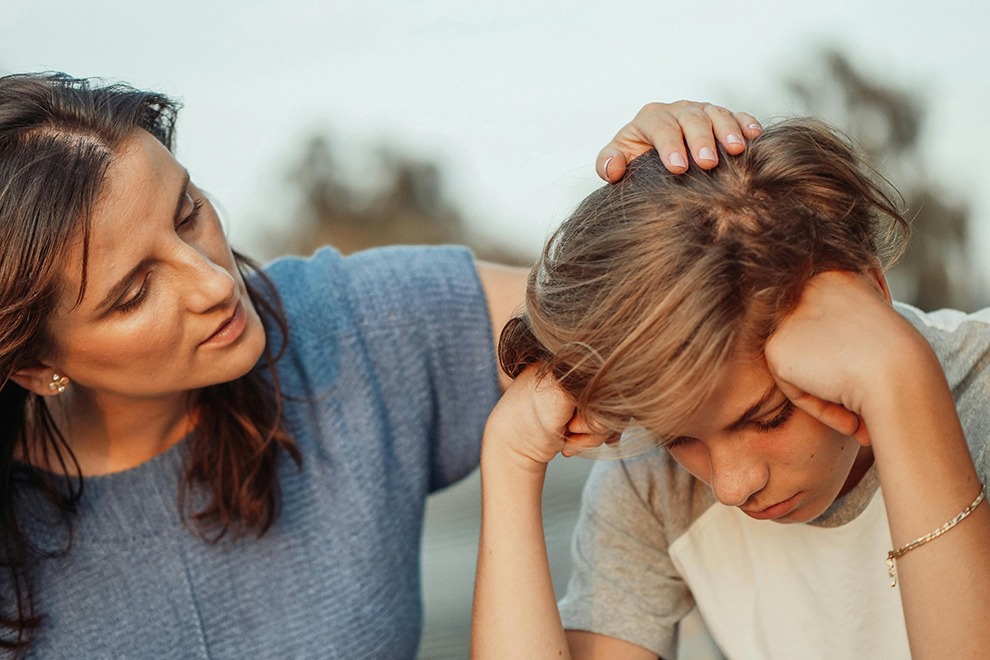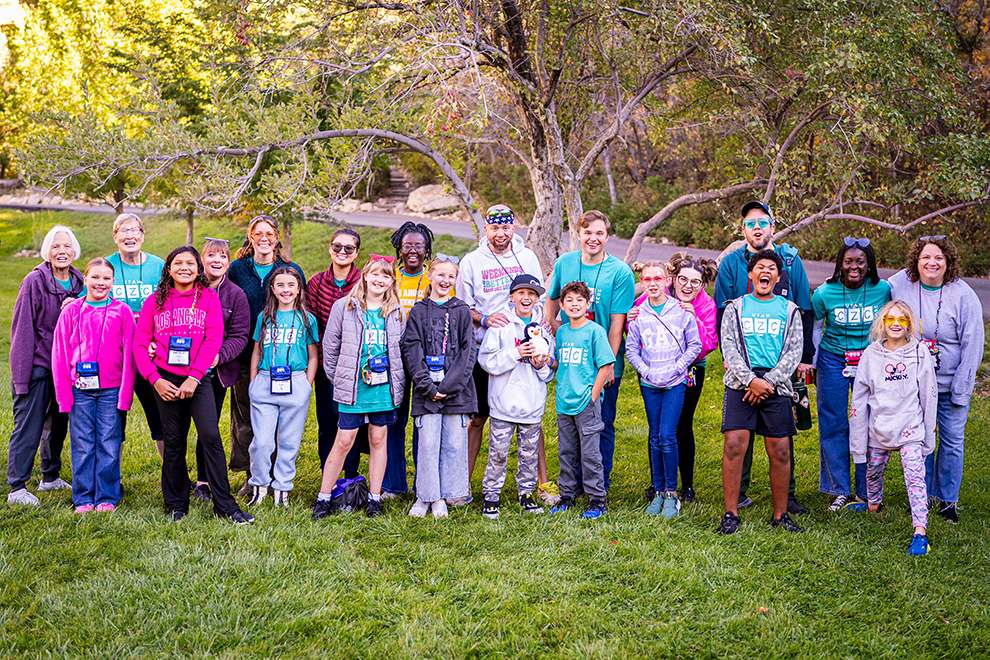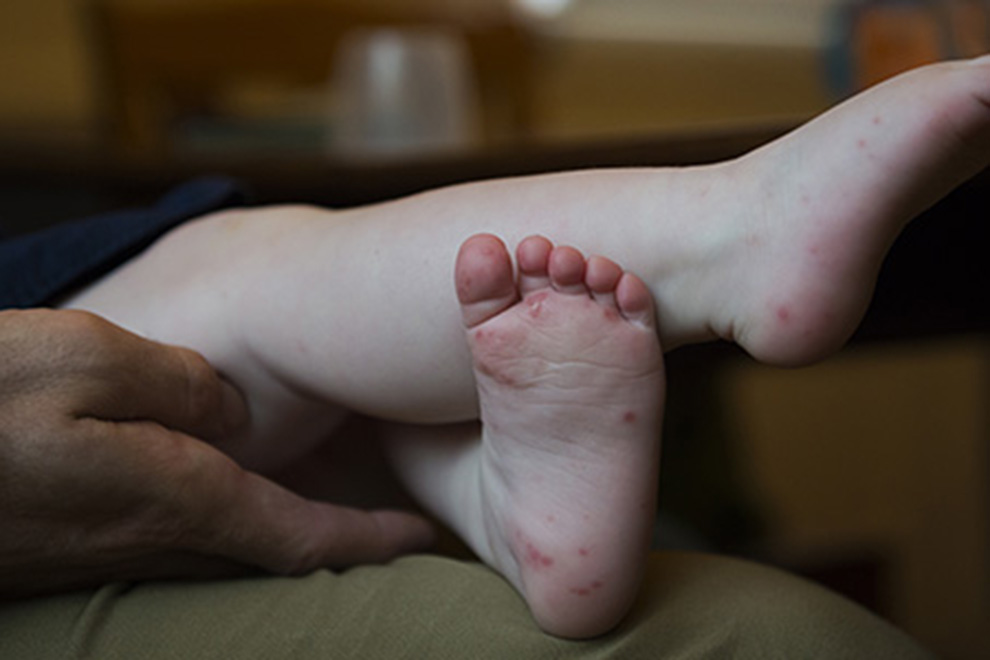Pediatricians are asked for advice at all stages of children’s growth and development, but few questions remain as polarizing as questions about vaccinations.
As the risks of vaccine hesitancy have become even more apparent – the World Health Organization has recently listed this as a top ten threat to global health – many doctors have done a better job of communicating the urgency we feel about vaccination. We are doing better proactively recommending vaccines and stating clearly what we know. Vaccines are safe. Vaccines are effective. Vaccines are critical to ensuring individual health and the health of our society as a whole.
Despite our efforts, some families still remain vaccine-hesitant and are foregoing or delaying vaccination for their children.
Vaccines Save Lives
For many parents, vaccine hesitancy stems from the difficulty of recognizing the direct benefits of an admittedly painful shot in their child’s day-to-day lives. Vaccines, in some respects, are victims of their own success. For many years, we didn’t see or feel the risks in our community amongst our friends and neighbors, and so the need to prevent that risk seemed miniscule.
This wasn’t always the case. In 1955, when the polio vaccine arrived, parents in Virginia lined up for hours to get their children vaccinated. They had often seen for themselves the tragedy of a neighbor’s paralyzed child or tragic death. Sometimes, they had fallen victim to the consequences of the epidemic themselves. They kept their own children home and away from crowds; swimming pools were closed and traffic was rerouted.
This emotional distance from the benefits of vaccines has had devastating effects for some families whose own children are affected by their choice not to vaccinate. One tragic story published by the Centers for Disease Control highlights the risk clearly. In 2009, a previously healthy 15-year-old died of chicken pox. Her parents had chosen to vaccinate her against some – but not all – vaccine-preventable illnesses, and not the one that eventually took her life.
I have no doubt that these parents chose the path they did with hopes of providing the best care for their child. Perhaps they felt chicken pox wasn’t serious, or maybe they wanted to spare her the discomfort of a shot. Can anyone believe, however, that they would not have made a different choice had they known exactly what vaccine-preventable disease would ultimately take their daughter’s life?
Other families are affected by vaccine hesitancy even when we do choose vaccination for our children. Because no vaccine provides perfect protection in any one individual, we rely on each other to keep preventable diseases from spreading. It is not just the unvaccinated children and families that are affected, but all of us in our increasingly connected world.
Protect Your Kids from Measles, Chicken Pox, and COVID-19
The recent measles outbreaks have highlighted the importance of this phenomenon known as herd immunity. In order for us to effectively limit the spread of measles, 93 to 95 percent of the population needs to be vaccinated against the disease. We have seen measles vaccination rates fall. In turn, we have seen the resurgence of outbreaks of a disease that was considered eliminated in the United States. More than 1,200 cases have been confirmed in the first eight months of 2019 alone. Most of these infections occurred in those who are not immunized – some too young to receive protection.
A colleague once compared full vaccination with the correct use of car safety seats and seatbelts. If a small, safe, routine act has the potential to protect children from immeasurable harm, why would we withhold it? Would any parent buckle one strap only on the car seat, and leave the others loose? For me, the simplicity in this comparison is powerful and persuasive. I hope it is for you, too.
In order for us all to see the benefits of vaccination, we all need to line up, much like those families who sought protection from polio decades ago. Vaccination is a personal step in a commitment to the health of our community, both our own children and the children of others.
Take a few moments to review reputable sources from the American Academy of Pediatrics and the CDC. One of the best resources is at the Children’s Hospital of Philadelphia’s Vaccine Education Center at chop.edu. A visit to this website will answer any questions you have about vaccines in a detailed, honest, and respectful fashion.
Finally, speak with your pediatrician to ensure your children are fully protected. Encourage friends and family members who are vaccine-hesitant to do the same. Our children’s health depends upon it.





